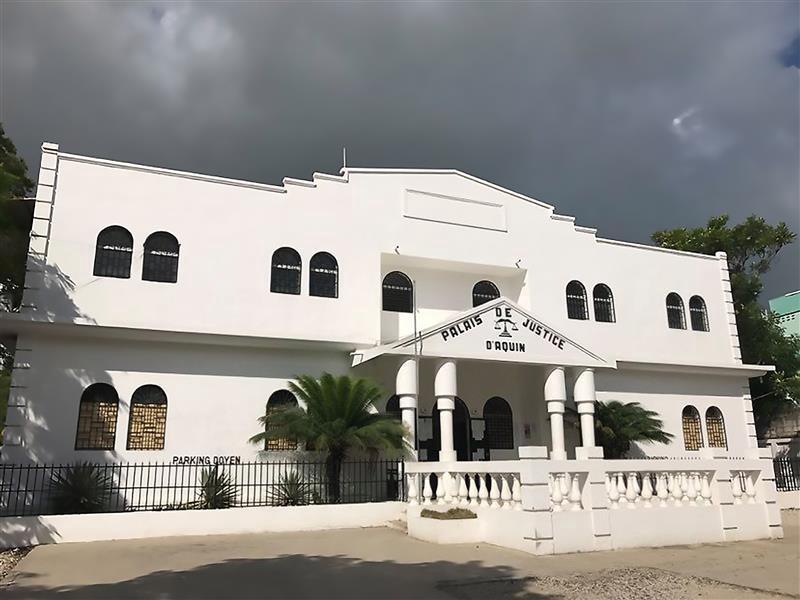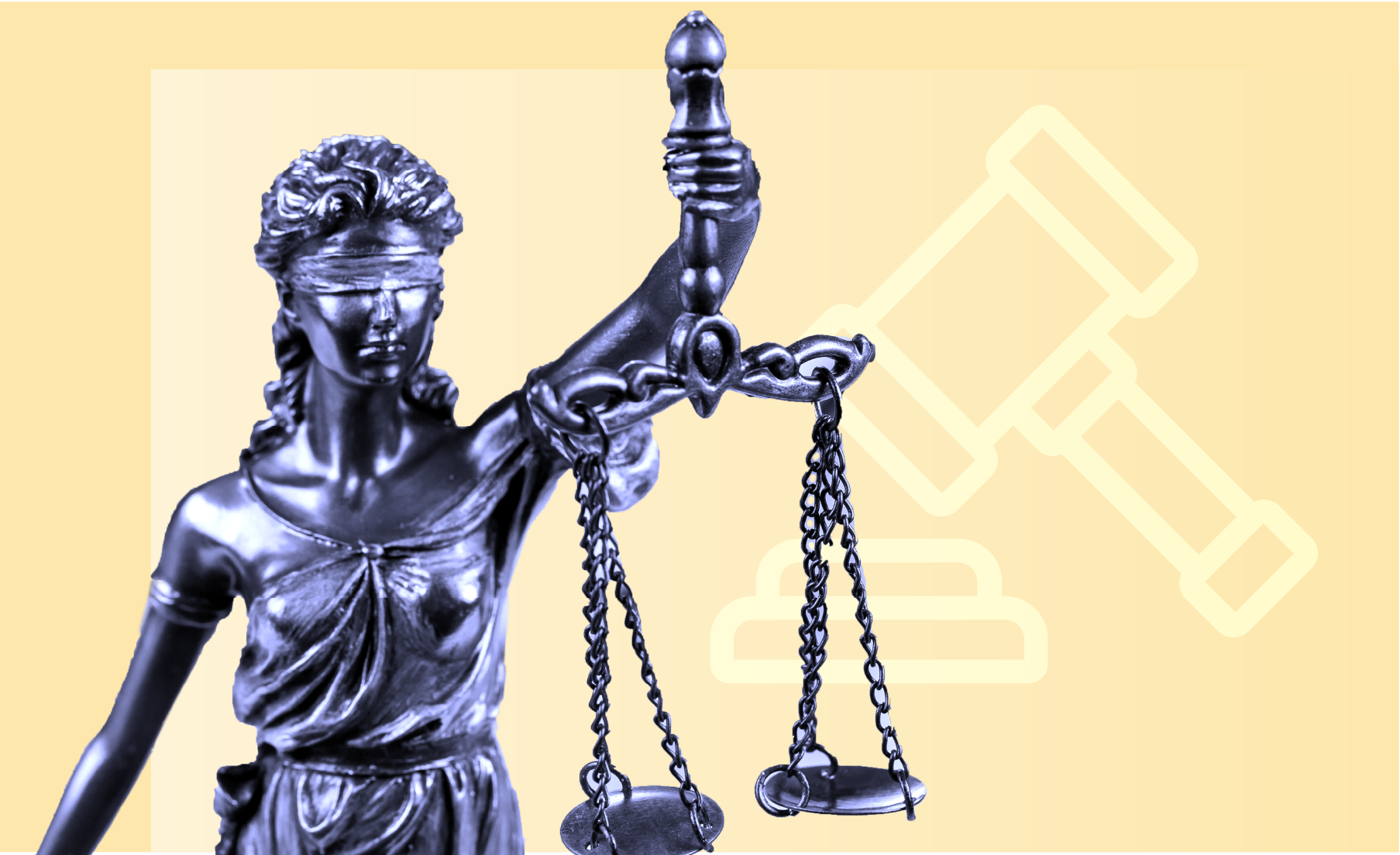Blog
Digitising Kosovo’s justice system to prevent corruption: the case management information system

This opinion and views expressed on this post reflects the opinion of the author and are not attributable to the Council of Europe.
Since independence in 2008, Kosovo’s state-building process has been jeopardised by greedy officials and high levels of corruption. International reports, articles and indexes show that corruption is widely perceived as a major challenge for the country. Yet despite the importance of showing concrete results in the fight against corruption (it is a key criterion for visa liberalisation and other relationships with the EU), the European Commission reports, year after year, that ‘Kosovo is at an early stage/has some level of preparation in the fight against corruption’.
The justice system is opaque and not trusted
I strongly believe that this situation is not only related to the number of corrupt politicians, since these are not unique to Kosovo, but because of the perceived prevalence of large-scale corruption in the justice system.
A steady stream of media reports has exposed the corrupt behaviour of some Kosovar justice officials, damaging the reputation of prosecution offices and undermining public trust in the justice system. Journalists and researchers have exposed prosecutors asking for bribes, violating the Criminal Procedure Code for monetary benefit or trading in influence. At the international level, the Rule of Law Index 2021 ranked Kosovo 94th for corruption in the judicial branch. These findings reinforce the perception that in Kosovo large-scale corruption renders the justice system broken.
A case management information system is a game changer for transparency
An electronic case management information system (CMIS) for the justice system is the most significant project to have been implemented through international donor support. Established in 2014, with funding from the Norwegian Ministry of Foreign Affairs, this €10 million project aims to increase transparency and accountability, and clarify the work of each judge and prosecutor. The CMIS is a game changer in addressing corruption risks in the prosecution system in a post-conflict country where corruption remains the most discussed and challenging topic.
Until the end of 2021 the CMIS was in its ‘consolidation phase’, which involves preparing the Kosovo Judicial Council and Prosecutorial Council to take over the project. All Basic Courts and Basic Prosecution Offices are using the CMIS, and the Court of Appeals, Supreme Court, Appeals Prosecution and Chief State Prosecutor Office are all working towards full connectivity.
The problem with paper and the need for better case management
Before the introduction of the CMIS, widespread lack of transparency and proper records management in the justice sector created spaces in which abuse of power, case postponement, dismissal and delayed decisions could be excused or explained away. This led to enormous criticism of prosecutors’ performance — particularly in the fight against corruption.
In 2017, the Council of Europe conducted the first and only Corruption Risk Assessment of the Prosecution system of Kosovo, which focused on the organisation and functioning of the prosecution system and the extent to which it had the capacity to promote and sustain integrity, to combat and prevent corruption. The assessment identified several corruption risks in the prosecution system, including a low degree of transparency and accountability.
The assessment found that dependency on paper files carried several risks:
- Transactions were more likely to go unrecorded.
- Prosecutors were taking files away from the office, with no safeguards.
- Chief prosecutors were reluctant to leave paper trails so they could conceal the source of a decision.
In addition, the Kosovo Law Institute (KLI) continually reported delays in registering cases, with case files remaining in prosecutors’ filing cabinets for long periods. In 2019, for example, KLI reported that several corruption cases remained in prosecutors’ cabinets for a decade.
Moving these systems onto the CMIS — and making its use legally binding — helps to mitigate these risks. Every piece of information is captured and transmitted digitally, with edits and updates audited and recorded.
Another concerning practice was the apparently ‘random system’ of allocation whereby chief prosecutors had personal discretion to assign cases to specific prosecutors without objective criteria. Here too the CMIS plays a pivotal role by assigning and distributing cases through open, established criteria.
KLI monitoring reports have repeatedly discussed several other deliberate practices on the part of prosecutors. Most concerning is the pattern of delaying corruption cases until they reached their statute of limitations, a tactic criticised by local and international reports. The EU Justice Monitoring Report, reported the tendency to maintain some cases in the initial phase, delaying opening of formal investigations, possibly in order to prolong the procedure so that the investigation extends over the legal deadline of two years, or to serve other pressures. Another recent report, Justice Delayed, notes that 50 corruption cases passed their statutory limitations between 2015 and 2019: more than 4% of all cases in Basic Court offices. In view of many this was the primary mechanism by which ‘inconvenient’ investigations could be disposed of.
CMIS: effective rules, procedures and penalties
Certainly, the CMIS may not be the panacea to all corruption risks in the prosecution system, or the justice system in general. The reach of IT tools varies between countries, and the data on the results achieved through its use are inconclusive. However, existing data show that organised and automated case management systems have great potential to increase transparency and accountability as well as reduce opportunities for corruption.
In Kosovo’s prosecution service many such deliberate practices should now be addressed by the CMIS. The system tracks the progress of cases and pressures prosecutors to act at each stage. The system can detect if steps have been skipped and whether fields have been ignored or filled incorrectly. And the overall length of proceedings is monitored, so delays can be diagnosed and mitigated. If used correctly, the system guarantees compliance with the correct procedures, since any misuse is immediately evident.
The Judicial Council and Prosecutorial Council oblige all prosecutors and other staff to use the CMIS. Both both have introduced rules and decisions around its use and both have brought in disciplinary measures for those who do not implement it.
Potential benefits for trust and accountability
Although implementing the CMIS in Kosovo has been challenging, and work remains to be done, once it is fully functional it has the potential to bring significant benefits to the justice system. By maximising efficiency and transparency, the CMIS is an important tool to ensure accountability, reducing opportunities for corruption while increasing trust in the system.
Disclaimer
All views in this text are the author(s)’, and may differ from the U4 partner agencies’ policies.
This work is licenced under a Creative Commons Attribution-NonCommercial-NoDerivatives 4.0 International licence (CC BY-NC-ND 4.0)


